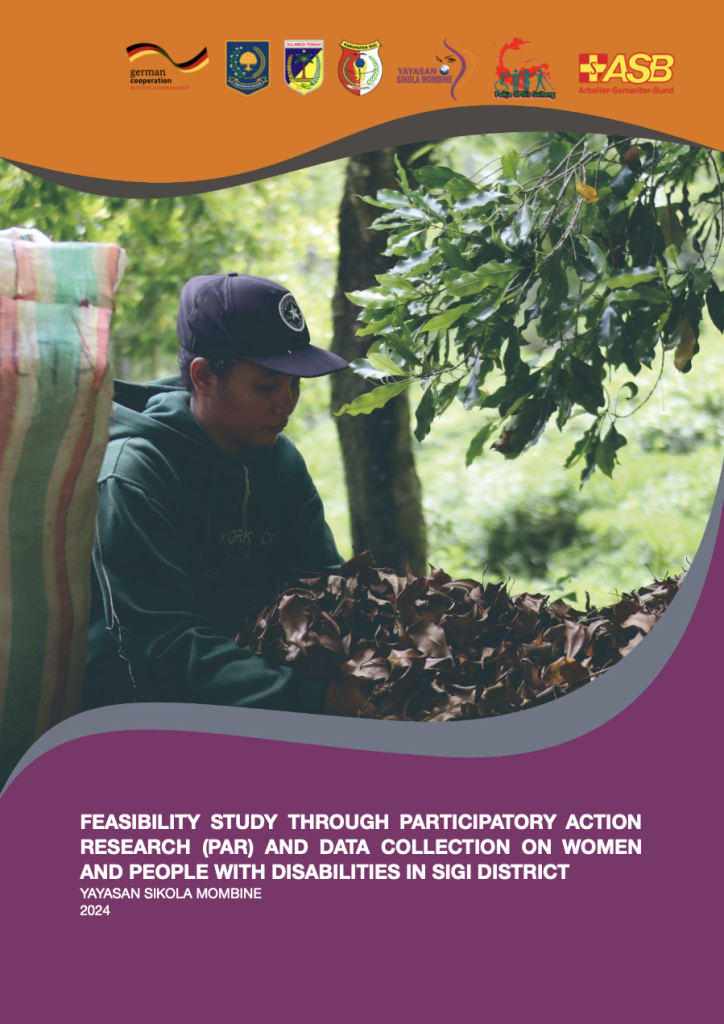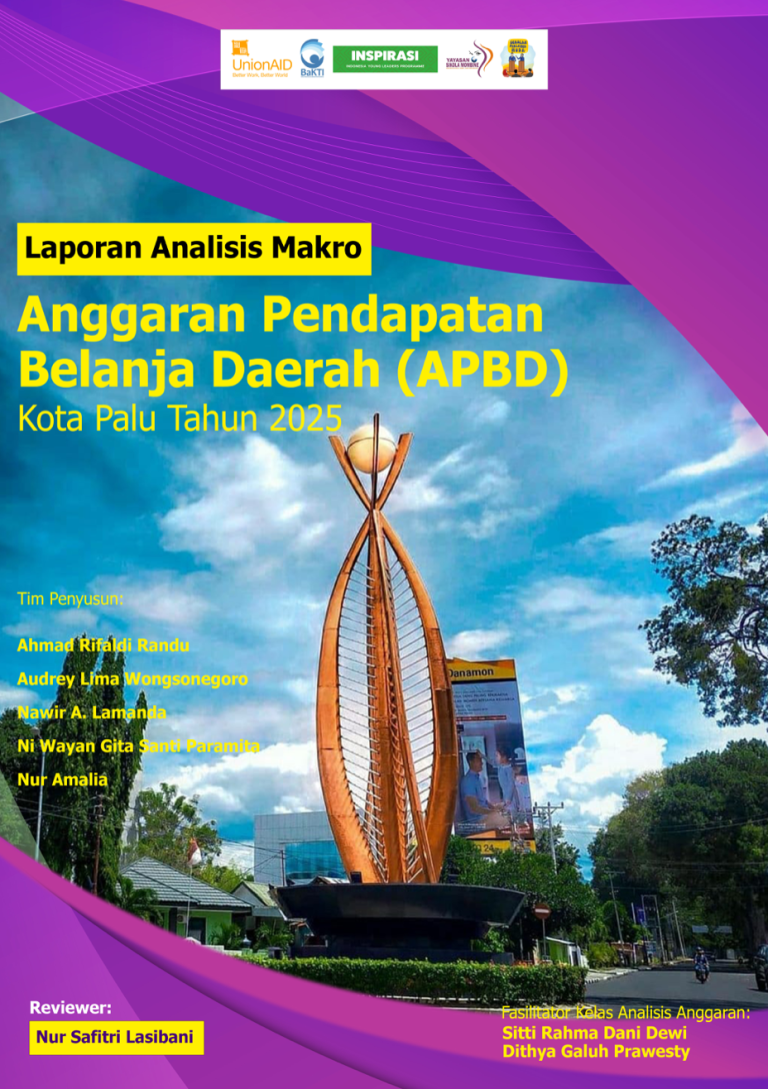
FEASIBILITY STUDY THROUGH PARTICIPATORY ACTION RESEARCH (PAR) AND DATA COLLECTION ON WOMEN AND PEOPLE WITH DISABILITIES IN SIGI DISTRICT
Assessment Team and Contributor:
Awaludin Aryanto, ST., M.B.A
Nur Safitri Lasibani, S.IP
Fira Tiyasning Tri Utari, S.Mat
Muh. Taufik Hidayat, S.Pd
Reza Anugerah, S.P
Cover and Layout:
Dwinanda Haryadi
Cover Photograph:
ForMate.Project
Published by:
Yayasan Sikola Mombine, Digdaya Consultant
Publication Year:
2024
***
Executive Summary:
The PAKAGASI program, aimed at enhancing the livelihoods of vulnerable persons with disabilities and women in disaster-prone areas, focuses on targeted interventions such as training, mentoring, and resource access. Emphasizing skill enhancement, business development, disaster mitigation, and fostering collaboration, the program underscores the pivotal role of BUMDES (Village-Owned Enterprises) and community participation for comprehensive empowerment. Supported by ASB Germany in partnership with the Ministry of Home Affairs, Sikola Mombine initiated the program in Sigi Regency, Central Sulawesi, covering three disaster-prone sub-districts: Sigi Biromaru, Gumbasa, and South Dolo.
Prior to program implementation, Sikola Mombine conducted a Feasibility Study and Business Potential Assessment utilizing Participatory Action Research (PAR) methodology. Through Focus Group Discussions (FGDs) and Key Informant Interviews (KIIs) employing gap analysis, the study aimed to establish baseline data for program approach and strategy, identify existing conditions, potential businesses, and assess their feasibility. Utilizing the McKinsey 7S framework, the study offered a holistic understanding adaptable to the program’s needs, identifying strengths, weaknesses, and actionable insights while enabling stakeholder engagement and trust-building.
The feasibility study engaged 143 participants across the three sub-districts and involved various stakeholders, including village officials, BUMDES executives, cooperatives, women/disability entrepreneurs, community leaders, farmers, governmental agencies, and NGOs. Findings revealed the ongoing need for capacity-building, production enhancement, market access, and optimization of BUMDES roles. Additionally, the study highlighted the prevalent preference for Savings and Loan Cooperatives in Sigi Regency, often managed manually. Integration with civil society, collaboration, regulatory support, and sustained budget allocation are deemed essential for program sustainability, particularly for flagship initiatives like SIGI MASAGENA.
